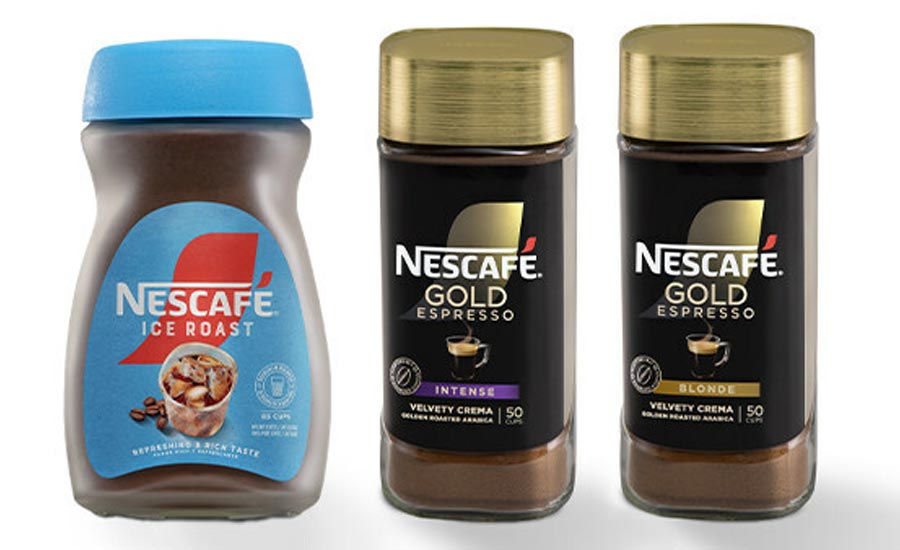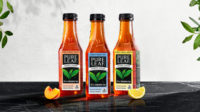2024 State of the Beverage Industry: Coffee, RTD coffee category recalibrate to meet consumer trends
Gen Z, sustainability and convenience hold influence on coffee market

Image courtesy of Pop & Bottle
As consumer trends continue to impact the coffee market, the overall category is shifting gears to drive growth and meet consumers’ changing preferences.
Caleb Bryant, associate director of food and drink at Mintel, Chicago, noted in Beverage Industry’s September 2023 issue, that the U.S. coffee market is experiencing the push and pull of conflicting consumer desires.
“Total U.S. retail coffee sales are projected to reach $20.8 billion in 2023, up 9.5% from 2022. This growth is primarily attributed to price increases,” Bryant explained.
Sally Lyons Wyatt, global executive vice president and chief adviser for consumer packaged goods and foodservice at Chicago-based Circana, echoed similar sentiments.
“Coffee experienced historical growth of 6.9% from 2018-2022, reaching $15.7 billion in annual sales, Lyons Wyatt said in Beverage Industry’s September 2023 issue. “Growth has experienced a slowdown in 2023 to 5.3% versus a year ago through July.
Top single-cup coffee brands (Individual brands)
Source: Circana, Chicago. Total U.S. supermarkets, drug stores, gas and convenience stores, mass merchandisers, military commissaries, and select club and dollar retail chains for the 52 weeks ending May 19, 2024.
“Like most categories, coffee has experienced a shift to price driven growth particularly in 2022, when pricing increased to double-digit levels after modest increases during the COVID pandemic,” Lyons Wyatt continued.
As the category continues to adjust to the current market climate, experts highlight how consumer trends are impacting the industry.
In Mintel’s “The Future of Coffee Market Report 2023,” the market research firm points to uncertain economic times as driving value-seeking behaviors across the global coffee industry.
“Squeezed budgets will see consumers save by buying more private-label coffee,” the report states. “However, by making this change consumers do not feel they are making a huge quality compromise.”
Mintel’s Bryant, in Beverage Industry’s September 2023 issue, explained that these value-seeking behaviors are in response to high inflation, pointing to private-label coffee products as outperforming the market average, while 19% of consumers say they are purchasing less expensive coffee to save money.
“However, demand for premium at-home coffee experiences remains high among many consumers; 16% of consumers report creating more specialty coffee drinks at home and 16% report treating themselves to more expensive coffee more often,” Bryant noted.
Circana’s Lyons Wyatt pinpointed premium coffees as driving growth in the category.
“Premium offerings are driving growth for coffee, gaining 3.1 percentage points of share from 2018-2022,” Lyons Wyatt said in Beverage Industry’s September 2023 issue. “We continue to see positive growth [year-to-date] YTD in 2023 as well.
Top cappuccino/iced coffee brands (Individual brands)
Source: Circana, Chicago. Total U.S. supermarkets, drug stores, gas and convenience stores, mass merchandisers, military commissaries, and select club and dollar retail chains for the 52 weeks ending May 19, 2024.
“These products offer consumers coffee shop tastes but at a fraction of the price,” she continued. “Mainstream and value both experienced declines as consumers shift spending to more premium priced offerings.”
Yet, consumers’ value-seeking behavior is not the only trend impacting the coffee market.
On the subject of sustainability, Mintel’s report notes that these trends will become increasingly important in the coffee market, suggesting that the future of the industry will be determined by how brands respond to these issues.
“Sustainability initiatives that benefit both producers and end consumers will be beneficial,” the report states.
Additionally, the report points to Gen Z’s increasing spending power, suggesting that “brands should tap into the generation’s love of indulgent iced coffees.”
“Repositioning classic hot coffee products as suitable for iced coffee can help appeal to younger consumers,” it states. ”There is also room to grow a younger audience for hot coffee through messaging focusing on comfort. In the United States, 34% of Gen Z consumers perceive hot coffee to be comforting (versus 29% for iced coffee).”
Circana’s Lyons Wyatt referred to Gen Z (younger consumers) as the “biggest” trend impacting the coffee market, in Beverage industry’s September 2023 issue.
“These consumers do not tend to consume as much traditional hot coffee as older cohorts and tend to gravitate more toward new experiences (cold brew) and also prefer flavor experiences to traditional unflavored coffee varieties,” Lyons Wyatt said. “This segment is causing manufacturers to rethink how to drive engagement and innovate around flavor/attributes that appeal to younger consumers.
“Another trend is the impact of social media,” she continued. “Either influencers and/or social causes have spurred growth in segments with the coffee category.”
As many consumers continue to cope with rising prices — cutting back on foodservice coffee expenditures and instead enjoying coffee at home — brands are innovating around desirable attributes such as sustainability, convenience and unique brewing processes.

Meanwhile, single cup, ready-to-drink (RTD) coffee and cold brew segments are driving growth for the category, Circana’s Lyons Wyatt noted in Beverage Industry’s September 2023 issue.
“These segments are delivering growth disproportionate to their size and are gaining share,” she explained. “This trend is driven by younger households entering the category through non-traditional segments. They offer convenience, various types and tastes that consumers want today. We have seen some new products delivering within these segments do well.”
Going forward, as manufacturers work to refresh/reframe their offerings to drive incremental growth, Lyons Wyatt predicted the coffee market will continue to see growth coming from “emerging categories” such as cold brew, flavored and RTD coffee.
“Social media will continue to be a factor in the future of the category,” Lyons Wyatt said in Beverage Industry’s 2023 issue. “Lastly, licensing and category extensions will continue to make an impact on the category and innovation.”
Looking for a reprint of this article?
From high-res PDFs to custom plaques, order your copy today!







